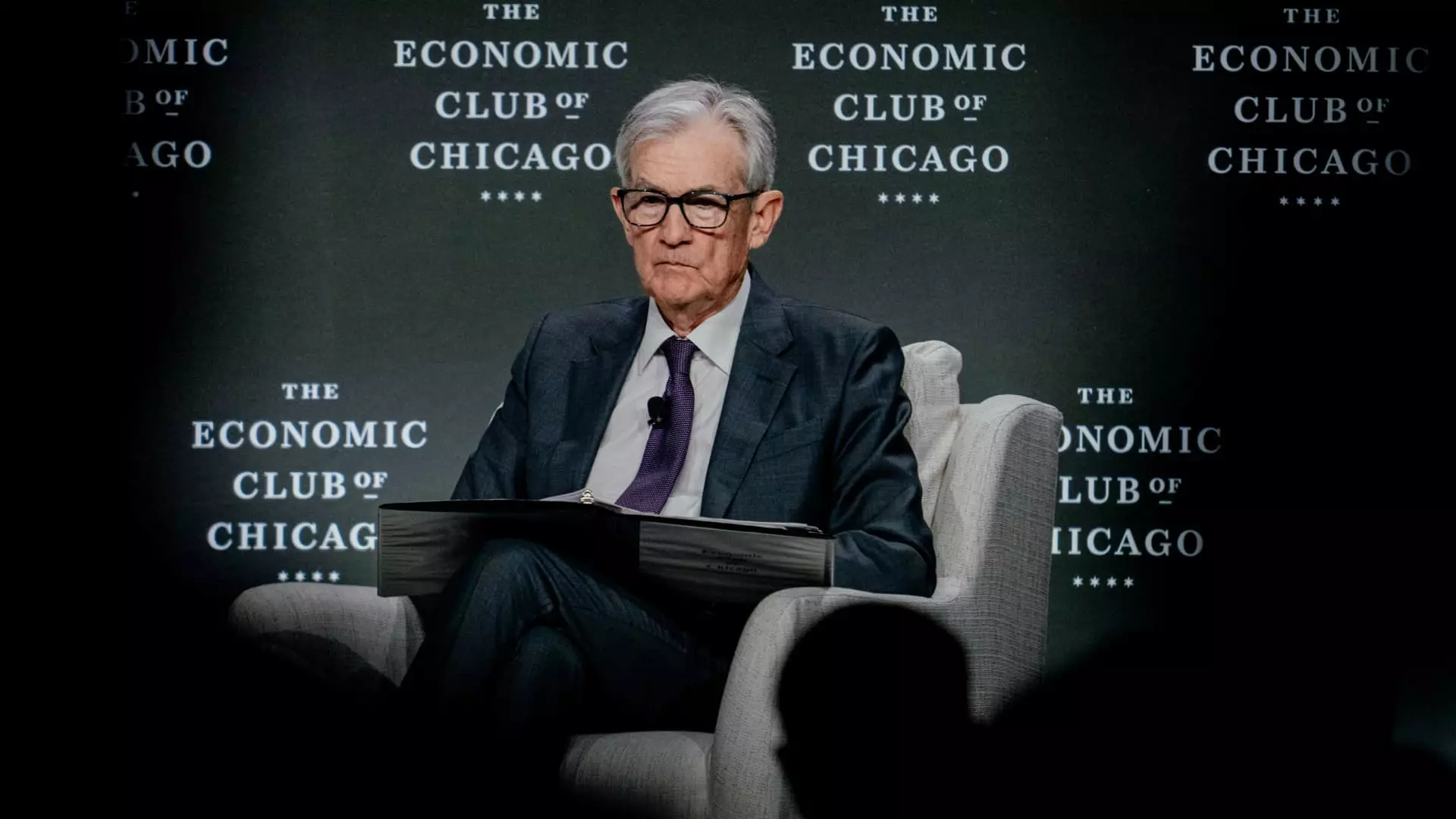In an unprecedented move that demonstrates the fragility of economic governance in the United States, former President Donald Trump has ramped up his campaign against Federal Reserve Chairman Jerome Powell, labeling him a “major loser” in a series of inflammatory social media posts. This aggressive stance raises alarm bells about the delicate separation between political ambitions and central bank autonomy—an essential pillar for maintaining economic stability. Trump’s tweet calling for immediate interest rate cuts, despite a narrative suggesting negligible inflation, disregards the fundamental principles of economic management and suggests a troubling blurring of lines between fiscal policy, economic forecasts, and political maneuvering.
Trump’s claims are rooted in the belief that recent declines in energy prices and other goods signify a symptom of a robust economy that could easily sustain lower interest rates. However, this stance dangerously simplifies the intricate dynamics of the economy. The risks of implementing preemptive interest rate cuts, especially in a climate already marred by uncertainty, are significant. The Fed’s decisions must be based on comprehensive data analysis rather than the whims of a political figure seeking to bolster his image. The potential outcomes of such hasty actions could spiral into economic turmoil, a reality that Trump’s commentary too often glosses over.
The Independence of the Fed Under Fire
As Trump contemplates whether to fire Powell ahead of his term’s expiration in May 2026, the implications of such an action cannot be overstated. The Federal Reserve’s independence is sacrosanct; it is designed to insulate monetary policy from the pressures of political whims, thus maintaining the integrity of economic frameworks that impact all Americans. Should Trump attempt to remove Powell, it would not only trigger a political firestorm but could also lead to catastrophic consequences for financial markets.
Economic analysts are sounding the alarm bells: undermining the Fed’s authority could lead to a swift exodus from U.S. equity markets, exacerbating already shaky investor confidence. Any challenge to the Federal Reserve’s independence could ratchet up borrowing costs, diminish consumer confidence, and destabilize economic growth. The reality is stark; Trump’s belittling rhetoric may feed his political base but at the expense of shattering trust in a critical institution meant to safeguard the U.S. economy.
The Market’s Response: Caution and Consequences
The immediate reaction from the markets to Trump’s latest tirade reflects the deeply intertwined relationship between political discourse and economic health. In a shocking downturn, the Dow Jones Industrial Average plummeted nearly 2% within a mere hour of trading, while the Nasdaq bore the brunt of a 2.6% drop. Such volatility serves as a timely reminder that markets are susceptible to the narrative spun by political leaders and the accompanying uncertainty that such narratives generate.
Moreover, the ripple effect of this uncertainty has driven investors toward safe-haven assets, with gold reaching record highs as individuals and institutions seek refuge from the financial storm brewing in the equity markets. Each spike in gold prices offers a glaring indication of the growing fears among investors about the economic landscape shaped by capricious trade policies and volatile leadership.
Powell’s Steady Hand Amidst the Storm
Contrarily, Powell’s measured response amidst the chaos reflects the careful stewardship required for guiding the economy. His insistence on waiting for clearer indicators before adjusting monetary policy highlights the Fed’s commitment to data-driven decision-making. Powell’s comments on the potential negative impacts of tariffs as part of Trump’s trade war reinforce the idea that impulsive political tactics may not only jeopardize the economy but could inadvertently enhance inflationary pressures.
While Trump may tout the concept of a thriving economy based on fleeting statistics, Powell recognizes the need for a careful evaluation of broader economic indicators. By ensuring that the Fed remains above the political fray, policymakers can make judicious choices that ultimately benefit the economy—choices devoid of the immediate pressures that come with electoral concerns.
The tension between Trump and Powell isn’t merely a battle of personalities; it encapsulates a more profound reckoning with the essential nature of economic governance in a democracy. As political actors increasingly seek to redefine the boundaries of institutional authority, the essential tenets of fiscal policy remain at stake. The consequences of a politically pressured Fed could be dire; history has shown us that the economy responds unfavorably to such interferences, often leading to the very crises leaders purport to avoid.

Leave a Reply